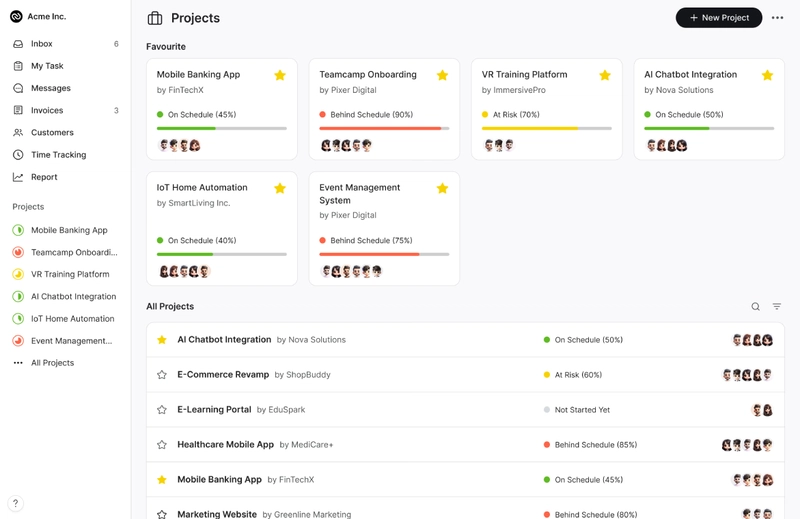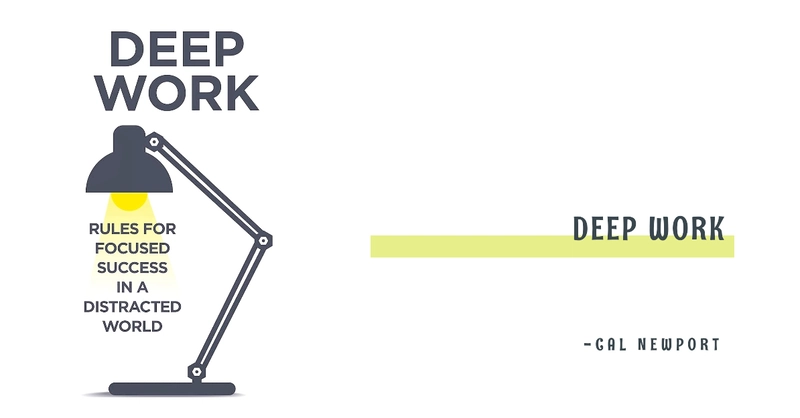Introduction
In the fast-paced world of software development, developers often struggle to balance focused coding sessions with team collaboration. Deep work—uninterrupted, highly focused time—is essential for writing high-quality code. However, collaboration, including meetings, code reviews, and brainstorming, is equally vital for successful software projects.
This blog explores why deep work and collaboration are both necessary, the common challenges developers face, and practical strategies to strike the right balance without sacrificing productivity.
Why Deep Work is Essential for Developers
Deep work allows developers to produce high-quality code, reduce errors, and solve complex problems efficiently. When developers can focus without distractions, they experience:
Increased Productivity: Developers complete tasks faster with fewer errors.
Better Code Quality: Continuous focus leads to well-structured and optimized code.
Reduced Context Switching: Frequent interruptions disrupt problem-solving and slow down progress.
Less Burnout: Deep focus helps maintain motivation and job satisfaction.
For example, a study by the University of California found that it takes an average of 23 minutes to regain focus after an interruption. Imagine losing that time multiple times a day!
The Role of Collaboration in Software Development
While deep work is crucial, software development is rarely a solo endeavor. Collaboration ensures that:
Knowledge is Shared: Code reviews and pair programming help catch mistakes early.
Project Goals Are Aligned: Regular check-ins prevent misunderstandings.
Creativity Thrives: Brainstorming and problem-solving sessions spark innovative solutions.
However, collaboration can sometimes hinder deep work. Issues such as too many meetings, constant Slack messages, and unexpected interruptions can significantly lower productivity.
Common Mistakes That Hurt Productivity
Many developers and teams unknowingly create environments that disrupt deep work. Some common mistakes include:
Over-scheduling Meetings: Too many meetings break up coding time and reduce focus.
Always Being Available: Responding to every message instantly prevents deep concentration.
Lack of Clear Boundaries: Without dedicated focus hours, developers struggle to maintain productivity.
Poorly Managed Task Priorities: Jumping between urgent but low-impact tasks disrupts meaningful work.
Practical Strategies to Balance Deep Work and Collaboration
To achieve a balance, developers and teams can implement the following strategies:
Time Blocking: Dedicate specific hours for deep work and separate slots for collaboration. For example, developers can code in the morning and attend meetings in the afternoon.
Async Communication: Use Slack threads, Loom videos, and email updates instead of real-time meetings whenever possible.
Meeting Optimization: Keep meetings short, structured, and only include necessary participants.
Collaboration Hours: Establish clear “no-interruption” hours for focused work and set specific times for discussions.
Leverage Project Management Tools

Tools like Teamcamp help manage projects asynchronously, reducing the need for excessive meetings.
Case Study: A Real-Life Example
A mid-sized tech company faced declining developer productivity due to constant Slack interruptions and excessive meetings. They implemented two deep work blocks per day and shifted most discussions to async communication. Within a month:
Meeting time reduced by 40%
Developer output increased by 25%
Bug reports decreased due to improved focus
Conclusion
Balancing deep work and collaboration is crucial for developers. While uninterrupted focus drives high-quality coding, collaboration ensures alignment and teamwork. By implementing structured schedules, async communication, and productivity tools, developers can create an efficient workflow.
If you want to read a more detailed blog on this topic, check out this in-depth guide on balancing deep work and collaborative projects
How do you manage deep work and collaboration in your team? Share your thoughts in the comments!







Top comments (5)
I find time blocking can be super useful in these scenarios it forces me to do things like put my phone on silent or turn it off so that I can focus. Otherwise, it's far too easy to get distracted by notifications, and my productivity goes down.
Time blocking is definitely a game-changer! Setting dedicated focus periods helps create that mental boundary between deep work and distractions. I’ve found that combining it with 'Do Not Disturb' mode and scheduling collaboration sessions separately works well. Do you also use any tools or apps to help with time blocking, or do you just stick to a manual approach?
Great insights! Balancing deep work and collaboration is a challenge many developers face, especially in fast-paced teams. I’ve found that time-blocking for deep work while setting structured check-in periods significantly boosts both focus and team alignment.
One approach that worked for my team is implementing “async-first” communication—leveraging detailed project documentation and updates to reduce unnecessary interruptions. This way, collaboration happens without constantly breaking deep work sessions.
For those looking to refine their workflow, I recently came across Deep And Collobration project, which provides practical strategies for optimizing developer productivity without sacrificing teamwork.
How do you personally handle the trade-off between responsiveness and uninterrupted focus time? Would love to hear more strategies!
Great insights! Striking the right balance between deep work and collaboration is a challenge many developers face. While deep work fuels productivity, too many meetings and interruptions can disrupt flow state. One approach I’ve found helpful is time blocking—setting dedicated focus hours while keeping specific slots open for collaboration.
Another key aspect is creating asynchronous communication habits, allowing team members to share updates without constant real-time interruptions. For anyone looking for more strategies, this post offers great insights on achieving this balance effectively.
How do you manage unexpected interruptions without completely derailing your focus time? Would love to hear more thoughts!
Great insights! Finding the right balance between deep work and collaboration is a challenge for many developers. While deep work boosts productivity, constant meetings and interruptions can disrupt the flow state. I’ve found that time blocking—setting dedicated focus hours while keeping specific slots open for collaboration—helps a lot.
Another useful approach is fostering asynchronous communication, so team members can share updates without disrupting each other’s workflow in real time. Tools with strong collaboration features, like Teamcamp, can help by streamlining workflows, enabling structured discussions, and reducing unnecessary interruptions. The Team Collaboration feature in Teamcamp makes it easier to balance focused work and teamwork efficiently.
This post shares some great strategies on achieving this balance!
How do you handle unexpected interruptions without completely derailing your focus time? Would love to hear more thoughts!"**
This keeps it natural and informative while subtly mentioning Teamcamp. Let me know if you’d like any adjustments!